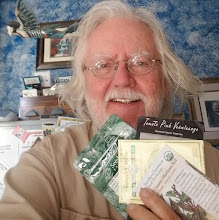In the world of hunger prevention and the honest efforts to better mankind's access to enough food for everyone, Nikolay Vavilov's name counts among one of the most important and dynamic pioneers. Unwilling to sit in a lab or in a university office, Vavilov made several very important excursions to areas where the beginnings of agriculture took root and there, where plants were first domesticated by humans, Vavilov sought to find, access and use that genetic diversity to help grow the crops that would feed the Russian people of the newly formed Soviet Union.
That Soviet Union supported Vavilov through out the beginnings of his career and allowed him to go on these international excursions – to Ethiopia, Mexico and the Amazon rainforest. Everywhere Vavilov went, he collected seeds, specimens and data on the many different plants that he came across being used as food for humans. He introduced species to be grown that could adapt to the growing conditions of the Russian farm belt and worked tirelessly to expand the food production capabilities of the Russian farmer.
Stalin's Soviet Union turned on Vavilov and threw him in prison, where, ironically enough, Nikolay Vavilov starved to death. Stalin's regime needed scapegoats and Vavilov would not endorsed the Soviet theory of genetics that Stalin promulgated. During the famines of the 1930's, Stalin undertook to convince the population that good harvests were just at hand because the new 'Soviet genetics' promised immediate changes in food plants' genomes. Of course, it wasn't true and Soviet harvests, just like American harvests, languished through the Great Depression of that decade regardless of propaganda. Vavilov, however, was just as dead as were thousands of Russian peasants who died of starvation as well. But Vavilov's ideas and his plants were not.
In WWII, then known as Leningrad, St Petersburg was besieged by the Nazi army. Scientists working at the Vavilov Institute protected Vavilov's seed collections with their lives – choosing to not eat rather than eat the seeds of Vavilov's work. All this in much greater detail is the narrative of Gary Paul Nabhan's Where Our Food Comes From: Retracing Nikolay Vavilov's Quest to End Famine. This small volume, incredibly readable, is one of many books Nabhan has written about our relationship to food. A quick read, it is none-the-less a fascinating tale of a truly gifted researcher who contributed much to our current understanding of food and how we came to have what we have to eat. Nabhan retraces Vavilov's journey on several of his important treks across our globe. It is a highly recommended read if you have any interest at all in eating.
Now, however, once again, the legacy of Nikolay Vavilov is again threatened, not by war, but by greed and development (I think the two words are practically synonymous – no, they don't have to be, they just often are). As reported on NPR a few days ago, the gardens that hold the plants grown from Vavilov's seeds is to be offered to the auction block for development. Please listen to the story. I am looking for a way to register my opposition to the sale of any property that is part of the Vavilov legend.
david






.jpg)
4 comments:
Tell the President of Russia to Stop the Destruction of the Future of Food - http://www.change.org/croptrust/petitions/view/tell_the_president_of_russia_to_stop_the_destruction_of_the_future_of_food
Thanks Mike! I went to that site and registered to put my name on the petition. Readers, if you Tweet, it appears that the Russian government tweets too so you can register your concern directly to them via Twitter. The article at that site has much more detail than my article - it's worth a read.
david
Sunday morning. It is misty in this side of Belgium. A nice day to enconter a warmer side of the world.
I am happy i found your site.
Maura - your comment reads like a poem. Thank you for writing - sometimes one writes and writes and it feels a little like the words are just thrown into a void. Your words are very appreciated and mean a lot.
david
Post a Comment